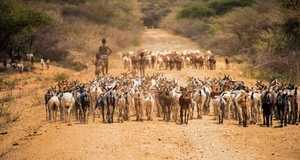|
From JournalQuest Earth Common Journal
Journal Description
Earth Common Journal (ECJ) is an international undergraduate peer-reviewed journal that provides a forum where students communicate a diversity of ideas and information on issues concerning conservation, sustainability, and climate change. Earth Common Journal is published by MacEwan University, Bachelor of Communication Studies program. It is published annually in September, with its inaugural issue released in 2011. Earth Common Journal accepts articles from all disciplines, and includes research projects that are empirical, qualitative, creative, and interdisciplinary in content and approach. It also accepts articles from students internationally, to provide global perspectives and discussions on conservation, sustainability, and climate change.
Published By
MacEwan University
10700 104 Ave NW,
7-168E, Edmonton, Canada
Get Updates
LATEST ISSUE
2016 - VOL. 6 NO. 1
A study in May 2014 analyzed food labels in Quito, Ecuador, to better understand the culture's nutritional communication. The study explored what is considered to be a healthy diet in Ecuadorian culture and how this is communicated, and also to what extent nutrients in packaged food are effectively communicated via labelling. Data was gathered using a mixed methods approach; first using quantitative methods with a survey administrated to students at the Universidad San Francisco de Quito. Following...
Sweden, a small country with almost 10 million inhabitants, is the world's most sustainable country according to some reports that compare environmental, social, and governance components between nations. Sweden plays a significant role in the European Union's work for a sustainable society in the European Union. Strict environmental policies and governmental initiatives that encourage all members of the society to invest in climate change projects are among the reasons that put Sweden on top of...
For the past four decades, pastoralist activities have been pushed to marginal areas in several regions of Ethiopia. This change was initiated by the Agrarian Land Reform Proclamation of 1974. Pastoralist activities prior to the agrarian reforms were strongly connected to the Earth and developed symbiotically. A connection to the Earth through symbiotic relationships has been shown to foster sustainability. This paper applies the centrifugal organizational model, originally synthesized in the field...
Climate change and the myriad of challenges that come with it are a reality the entire world must face. However, for Canadian province, Alberta, the stakes are especially high. Oil and gas mining made up 18.3% of Alberta's GDP in 2015 and therefore plays a significant role in its economy. Alberta has also been subject to degrading air quality and natural disasters like the recent Fort McMurray Fire. Provincial and municipal governments have, however, taken many steps to addressing the array of environmental...
We live in a globalized world where international cooperation and information sharing is often required. This need for connection is prevalent when it comes to species conservation. Different national and international organizations and policies exist with the aim of conserving biological diversity around the world. However, the manner in which these groups define criteria for endangered and threatened species varies. As these categories are often the basis for conservation action and extinction...
Whenever a decision is made in a social, political, or economic context, it is implicitly grounded in an ethical outlook. But where do these outlooks come from? To investigate this query, I examine the basis for ethical decisions regarding technology, focusing specifically on geoengineering responses to climate change. Subsequently, I argue that ethical considerations concerning climate change, and their corresponding practical decisions, cannot be reliably made without sufficient intelligibility...
An abundance of scientific evidence points to the fact that humanity cannot continue along our current path of environmental destruction. Our atmosphere and air quality are being damaged by fossil fuels (Christoforou, 2004, para. 13) and industrial farming (Bourgeois, 2012) at an alarming rate. Our oceans are permeated with the remnants of our plastic addiction (Foss, 2013, p. 2). And yet, people are still using plastic bags and Styrofoam containers, eating meat at every meal, and buying fuel-guzzling...
|














